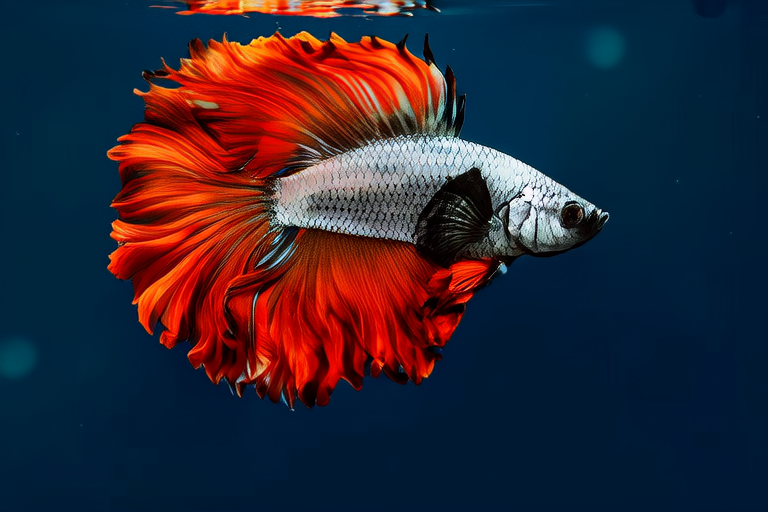From Tank to Table: A Beginner’s Guide to Caring for Betta Fish
Welcome to your ultimate guide to caring for betta fish! Often referred to as Siamese fighting fish, bettas are known for their vibrant colors and flowing fins. However, despite their popularity, many new owners underestimate the complexity of their care. This comprehensive guide will help you set up a thriving environment for your betta and ensure its long-term well-being.
Choosing the Right Tank Size
One of the most common misconceptions about betta fish is that they can thrive in small containers. While bettas are often sold in tiny cups, this does not mean they prefer or require such cramped spaces. A minimum tank size of 2.5 gallons is recommended for a single betta. Larger tanks allow for better water quality and more swimming space, which contributes to the overall health and happiness of your fish.
Appropriate Water Conditions
Bettas are tropical fish, so maintaining the right water temperature is crucial. Keep the water between 76°F and 82°F. Use a reliable aquarium heater to maintain consistent temperatures. Additionally, ensure the water is free from chlorine and heavy metals. Using a water conditioner specifically designed for fish tanks can help neutralize these harmful substances.
Suitable Tank Mates
Bettas are often mistakenly believed to be solitary creatures. While it’s true that male bettas are territorial and aggressive towards other males, female bettas can coexist with each other and some peaceful community fish. Good tank mates include cherry shrimp, snails, and certain species of guppies and tetras. It’s important to research potential tank mates thoroughly to avoid conflicts.
Diet and Feeding Habits
Bettas are carnivorous by nature and should be fed a high-protein diet. High-quality betta pellets or flakes are ideal, but supplementing with live or frozen foods like bloodworms and brine shrimp can enhance their diet. Feed your betta twice daily, offering only what it can consume within two minutes. Overfeeding can lead to poor water quality and health issues.
Regular Maintenance
Maintaining a clean tank is vital for your betta’s health. Perform weekly water changes of around 25% to keep the water fresh and reduce the buildup of harmful toxins. Use a gravel vacuum to remove debris and uneaten food from the substrate. Regularly clean the filter and decorations to prevent the growth of algae and bacteria.
Common Health Issues
Despite proper care, bettas may still encounter health problems. Common issues include fin rot, ich (white spot disease), and swim bladder disorder. Fin rot manifests as frayed or discolored fins and is often caused by poor water quality. Ich presents as small white spots on the fish’s body. Swim bladder disorder can cause buoyancy issues. Early detection and treatment are key to addressing these problems effectively.
Signs of a Healthy Betta
A healthy betta should exhibit vibrant colors, active swimming, and a good appetite. Their fins should be intact and free from tears or discoloration. Regularly observe your fish for any unusual behavior or physical changes. If you notice anything amiss, consult a veterinarian specializing in aquatic pets.
Setting Up a Stimulating Environment
To keep your betta mentally stimulated, provide a variety of hiding spots and toys. Floating plants, caves, and tunnels offer places for your fish to explore and feel secure. Bettas are curious and enjoy interacting with their environment. Ensure that any decorations are safe and do not have sharp edges that could damage their delicate fins.
Maintaining Water Quality
Water quality is paramount to the health of your betta. Invest in a quality aquarium filter to help manage waste and maintain clarity. Regular water testing is also essential to monitor pH levels, ammonia, nitrite, and nitrate concentrations. Adjustments can be made if necessary to ensure optimal conditions.
Dispelling Myths About Betta Care
Many myths surround betta care, and it’s important to separate fact from fiction. For example, while bettas can survive in small spaces, they do not thrive there. Another myth is that bettas don’t need a filter. In reality, filters are beneficial for maintaining water quality and preventing harmful bacteria from accumulating. Lastly, it’s a misconception that bettas can survive without a heater. As tropical fish, they require stable, warm water temperatures to stay healthy.
Conclusion
Caring for a betta fish is a rewarding experience when done correctly. By understanding their needs and providing a suitable environment, you can ensure your betta leads a happy and healthy life. Remember, patience and dedication are key. With time and effort, you’ll become an expert at maintaining a thriving aquatic ecosystem. Happy fishkeeping!
